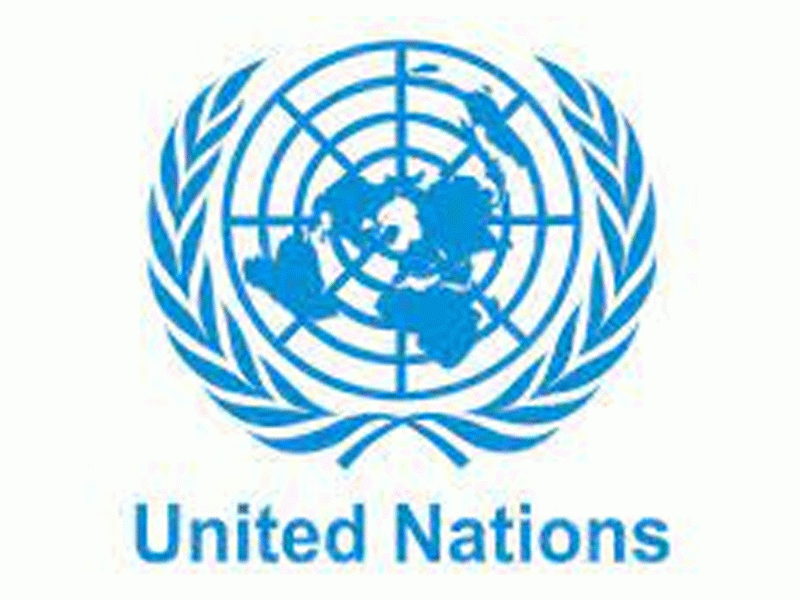By Cecilia Ologunagba
UN Middle East envoy, Mr Tor Wennesland on Wednesday, called for an inquiry into the strike against a Gaza hospital that killed hundreds, including patients, staff and displaced people seeking shelter.
Wennesland made the call while briefing the Security Council in New York on the crisis in the Middle East.
He told the Security Council that he “watched in horror and in real time” as reports of mass casualties emerged from Al-Ahli Hospital in Gaza City on Tuesday.
“The circumstances of this catastrophe and responsibility remains and still needs to be clarified. And we will need a fact-based, full investigation and broad investigation,” he said, speaking from Doha.
Wennesland, officially UN Special Coordinator for the Middle East Peace Process, updated the Council on his efforts to end the current hostilities, which he called one of the most difficult moments facing Israelis and Palestinians in 75 years.
The envoy unequivocally condemned the Hamas militant group’s deadly attacks on Israel on Oct. 7, and seizing of hostages, saying there was no justification for these acts.
“I fear that we are at the brink of a deep and dangerous abyss that could change the trajectory of the Israeli-Palestinian conflict, if not of the Middle East as a whole.
“After more than a century of conflict and over half-a-century of occupation, the international community had failed to bring the parties to a just, sustainable political resolution.
“The recent events have served to re-ignite grievances and re-animate alliances across the region.
“The risk of an expansion of this conflict is real – very, very real – and extremely dangerous,” he warned.
He said he had been working to avert this threat and that the UN Secretary-General had been in constant communication with both the parties and regional and international actors “who have agency and influence.”
The envoy is expected to return to Cairo on Thursday to join the Secretary-General in continuing these discussions, and he also welcomed the Egyptian President’s swift convening of a summit of world leaders to discuss the crisis.
“With the parties on the ground in Jerusalem, Tel Aviv and Ramallah, my message has remained steadfast, that we must not let the dynamic of the current conflict take our eyes off what I will call the day after.
Wennesland stressed the need for time and space to achieve two urgent objectives, namely Hamas’s immediate, unconditional release of all hostages, and unrestricted access of humanitarian aid into Gaza.
He further appealed for collective efforts to end the hostilities and prevent any further expansion of the conflict to the region.
“Regarding West Bank and Lebanon, there should be no miscalculation, no provocation and no step that closes the door to our current efforts,” he said.
The envoy also underlined the ultimate need to work towards a long-term political solution, in line with UN resolutions, international law and previous agreements.
UN Humanitarian Coordinator, Martin Griffiths, supported the call for a fact-based inquiry into the deadly blast at Al-Ahli Hospital, noting it had also been hit last week.
“This tragedy is characteristic of the crushing impact this conflict has had on civilians and…the catastrophic consequences it will have if it continues to escalate, as we fear,” he said, speaking from Cairo.
The UN relief chief detailed the damage the already beleaguered Gaza health system has sustained in the conflict. Since Oct. 7, 28 health workers have reportedly been killed and 23 injured.
Health services are overstretched and on the verge of collapse, meeting the needs of the rising number of wounded patients in the face of ever-deepening shortages of fuel, medicines and supplies.
Overall, more than 3,000 people in Gaza have been killed, including 14 staff members from the UN agency that assists Palestine refugees, UNRWA.
More than 12,000 people are injured and hundreds more are unaccounted for.
Griffiths reported that the death toll had already exceeded that of the 2017 hostilities which lasted more than seven weeks.
“The pace of death, of suffering, of destruction, of breaches of international law, cannot be exaggerated,” he said.
Meanwhile, one million Palestinians have escaped their homes with nowhere to go, and as supplies of food, water, fuel and medical items dwindle.
UNRWA has been forced to ration water to one litre per person per day, far less than the minimum standard of 15 litres.
The UN’s top humanitarian official highlighted the critical need for aid to be delivered safely to civilians throughout Gaza, and for funding to support these operations.
He said UNRWA, the Red Crescent, and other agencies had staff and many volunteers who were still on the ground and ready to assist.
“What we don’t have – and it’s a killer, and what we desperately need – is immediate safe humanitarian access. And that is the burden of our discussions with key parties,” he added.
Griffiths reported that prior to “these terrible weeks,” 100 trucks a day delivered aid throughout Gaza and “we need to get back to that level of ambition.” (NAN)




